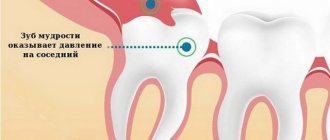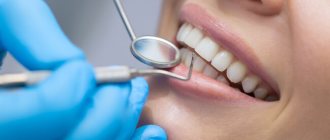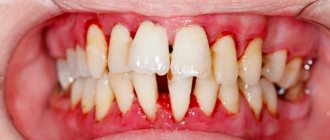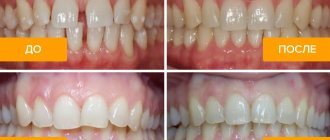“Everyone says that health is most valuable; but no one observes this.”
— Kozma Prutkov
Attitudes towards dental health are changing: many regularly go for checkups, have their teeth professionally cleaned, and if they undertake treatment, they plan to “get everything in order.”
There is also another approach: people go to the clinic “when they get sick,” and having solved the problem, they disappear “until a new case occurs,” apparently not wanting to spend more on health than is necessary now.
A story about an integrated approach to dental treatment will be useful for everyone, because it allows you to regain your health and not overpay for treatment. Yes, yes, an integrated approach, including saving money!
a comprehensive treatment plan is and then illustrate what the savings are.
What is a comprehensive dental treatment plan?
A comprehensive plan is a treatment and preventive measure, the goal of which is a sanitized (healthy) oral cavity.
Dentists have a list of requirements for oral health:
all caries and its complicated forms (pulpitis and periodontitis) were cured; all fillings, inlays and crowns with defects in the oral cavity were replaced; no foci of chronic infection; dental deposits were removed; mucous membranes and gums were removed without signs of inflammation; all 28 teeth were present (full dentition!) all teeth have the correct anatomical shape, no pronounced orthodontic disorders
Since it is impossible to prescribe the correct treatment without finding out the cause of the disease, a diagnostic examination . The required minimum is photographs of the jaws (orthopantomogram) and an examination by a dentist-therapist.
A complete diagnosis may include consultations with an orthopedist, surgeon, implantologist, orthodontist, periodontist, other specialists (anesthesiologist, ENT doctor, allergist) and additional research:
- CT scan
- temporomandibular joint examination
- photographing a face
- production of diagnostic models
- modeling of orthopedic structures
- creation of wax-up and mock-up models of teeth
- planning the surgical stage of treatment
After a diagnostic examination, the doctor draws up a treatment plan that allows you to eliminate all identified disorders in the oral cavity.
The doctor offers at least two options:
- Recommended Treatment Plan (Best Option!)
- An alternative treatment option , which usually involves a lower cost due to the use of simpler technologies and materials.
, an executable treatment plan can be drawn up that takes into account the financial capabilities and other limitations of the patient.
When refusing the recommended plan , which, in the doctor’s opinion, is the best treatment option, you need to be aware of all the possible consequences of unresolved problems in the oral cavity and be prepared to accept the shortcomings of simpler technologies and materials.
But it’s better to choose an economical option than to let your health take its course by postponing dental treatment “until better times.”
After signing the plan, you can begin treatment!
An integrated approach to dentistry is an advantage for the patient
Why is a comprehensive dental treatment plan the best way to get your teeth in order and save money?!
A comprehensive dental treatment plan at the Family Stom clinic is a detailed list of tasks that the dentist recommends to our patient after an examination and consultation with the endodontist and prosthetist of our clinic, planning the correction of all problems in the oral cavity: from treating the simplest caries to compensating for lost teeth. teeth.
A dental treatment plan usually includes several important steps:
- Professional examination, complete diagnosis and description of the condition of the oral cavity, which describes all the violations identified during the examination.
- Recommended solutions. Several options can be offered based on the patient’s capabilities.
- Stages and timing of treatment. The doctor calculates how much time he plans for treatment and prosthetics, or more precisely, how many visits the patient will have, and also outlines the budget based on the proposed treatment and prosthetics options.
- If the patient wishes, we can describe the chosen treatment method and the materials that we will use
- The patient chooses the optimal dental treatment plan from the proposed options. You can make your choice at any time convenient for you; we will never insist on your decision during the consultation.
We understand that the upcoming work to restore the beauty of your smile can be quite expensive for you, and you need to think it over, calculate your budget and strength. Our specialists are always very loyal and never impose any solutions or services, they only recommend based on the needs of the diagnosis.
Why does planned treatment save money?
It’s simple, because by planning oral treatment, you will definitely save all the teeth that have gone “on the path to caries.” And you probably already know that the deeper the caries, the more expensive its treatment is (because the work is more difficult, because more filling material will be used, etc.). If you follow a clear plan, then you are counting on your budget and your dentist, who is interested in making your teeth strong for many years to come. Another example of savings is the high-quality work and certified materials that we use - you will not have to pay again for a filling that fell out after half a year, since our Family Stom dentistry is a guarantor of the quality of dental technologies. An integrated approach to dentistry is an advantage for the patient, because the picture of the state of oral health is diagnosed at the same time by all dental specialists, and most importantly, further treatment and prosthetics occur together, which means the highest quality and technology for the patient. It is a comprehensive diagnosis that will tell you what you yourself will never know about the health of your own oral cavity, for example:
- A dead tooth is weaker than a living one. Do you already have nerveless teeth? And you don't feel the difference? That’s right, there shouldn’t be any difference in sensations, but the mechanical wear and fragility of a dead tooth are several times inferior to the strength of a healthy tooth. That is why the dentists of our clinic take care of your living teeth. During diagnostics, the first thing we do is tackle acute inflammation and caries that has not yet destroyed the pulp - we save a living tooth. Only a specialist will tell you the degree of caries; it is impossible to determine the stage of caries in the mirror at home.
- Treatment of caries is the loss of part of the tooth - this is what patients who very rarely go to the dentist say, in fact, treatment of caries is the salvation of the remaining part of the tooth and the tooth as a whole!!! Modern filling materials in our dentistry fit perfectly onto the tooth; you will forget where your filling is if you visit your dentist in time and we will remove caries at its initial stage.
- What happens if you wait for a filling to fall out? Why wait? You remember that the deeper the caries, the more expensive it is. But this is one side of the coin... On the other hand, if a small piece of your filling breaks off and you decide that this is not a reason for a visit to the dentist, then caries at this time takes advantage of your kindness and begins its second life under the filling, since bacteria can easily penetrate through micro-cracks near the chip. We urge you to love and protect your teeth from insidious caries, which acts while we do not remember about it.
- Should you remove or not remove a tooth if an X-ray shows that you have a granuloma or a cyst? Wait a minute, why did you decide that the question was about deletion? Firstly, such a solution can only be diagnosed by a specialist in the field of treatment of dental pathologies. Secondly, yes, treating granuloma is a complex process. Our clinic’s endodontists save teeth from very difficult situations; modern dental techniques are aimed at treating cysts and saving teeth. Tooth extraction entails a number of serious problems if you do not proceed with the further installation of an implant, for example. Therefore, let's be determined that your cyst or granuloma will respond to our modern therapeutic treatment!
- It is possible to live without teeth, but it is extremely difficult and is fraught with danger to the health of the entire body. The primitive understanding is that chewing in the absence of molars is really difficult, and as a result, there are problems with the gastrointestinal tract that occur due to poorly chewed food. In addition, over time, in the area of missing teeth, the gums begin to decline and after a few years the teeth in the oral cavity begin to shift into an empty cavity, and a correct bite is needed at any age, the displacement causes pathologies of the gums and healthy teeth - this is to briefly tell you about the picture of development situations in the absence of teeth in the simplest version (in life everything is much more complicated and more deplorable). Don’t allow yourself to be missing teeth for many years—help your health stay strong.
- Gum health is important, since pathological gum diseases are painful and unpleasant, and most importantly, the health and presence of teeth in the oral cavity directly depends on the health of the gums! It is to maintain healthy gums that hygienists urge you to come for professional cleaning every six months.
Rest assured that a comprehensive dental treatment plan is your ace in the game for good oral health!
Why does planned treatment save money?
After reading the list of requirements for dental health and assessing the volume of diagnostic tests, you can’t help but think: “What kind of savings can we talk about if we need to do all this?”
Let's not lie - dental treatment is not cheap! Therefore, when we talk about saving, we first of all mean that prevention and timely treatment can protect us from major health problems.
Secondly , planning in any matter, including treatment, is an opportunity to foresee the consequences of certain actions, reducing the likelihood of errors, and therefore costs, to a minimum.
What is well known to dentists is sometimes not obvious to ordinary people, so now we will demonstrate how treatment becomes more complicated and more expensive if dental diseases occur.
Benefits of comprehensive treatment
By giving preference to one or another course of action, the patient receives a number of benefits. First of all, professional treatment of the dental system will be carried out by qualified personnel.
Each patient is given a certain time to carry out manipulations, clearly defined by the regulations. The financial side of the issue is discussed in advance and remains unchanged.
A person feels absolutely calm and confident, accurately understanding the essence of the issue, the purpose and purpose of all therapeutic measures, from the technologies used to the materials and medications chosen for use. The entire treatment process from start to finish looks thoughtful and understandable.
Caries - the deeper, the more expensive
If at the initial stage of caries there is a chance to cure it without even drilling the teeth, then with deep caries it may be necessary to treat the canals and restore the tooth with a crown.
Read about the treatment of caries at different stages in the articles:
- How to treat caries? Today using the Icon method or tomorrow drilling with a bur?
- Caries: what is it like? And why does treatment differ so much in price?
Stages of treatment:
Removal of a tooth
Removal of a decayed tooth in the upper jaw. The tooth was practically destroyed and could not be restored.
Photo after gum removal and healing:
Canal retreatment and caries treatment
Two teeth on the lower jaw need retreatment. High-quality dental canal treatment is performed only with the use of a microscope.
Caries was treated in one tooth, and the root canals were treated in another, as the inflammation spread to the nerve. Both teeth are securely covered with ceramic inlays. Professional teeth cleaning was performed to avoid caries during orthodontic treatment. Everything is ready to install braces.
Orthodontic treatment
Bite correction was performed on the lower jaw, since it was the teeth below that suffered most from bite deformation. An orthopantomogram taken during treatment shows how one of the lower teeth is knocked out of the general row. With this positioning of the tooth, high-quality prosthetics of the antagonist tooth is impossible.
The doctor and the patient decided on the Insignia braces system. Insignia braces are individualized for each patient, and the stages of treatment are calculated on a computer, which significantly reduces the duration of orthodontic treatment and guarantees excellent results.
The photo shows the final stage of orthodontic treatment. The teeth are aligned along the arch, crowding of the teeth is eliminated, the size of the lower jaw corresponds to the size of the upper jaw. Orthodontic treatment lasted 8 months.
Dental implantation
The dental implantation procedure was calculated based on a CT scan taken in the clinic and was performed using a surgical template, eliminating errors and inaccuracies during installation. 6 Astra Tech dental implants (Sweden) are installed on the upper jaw.
One Astra Tech implant is installed on the lower jaw.
7 Astra Tech dental implants were installed during one operation. Bone grafting was used on the upper jaw. During the operation, which lasted 5 hours, the patient was under sedation. Dental operations under sedation relieve the patient of discomfort and memories of surgery. The dental implantation was successful, without complications.
Orthopantomogram after implantation.
Implant prosthetics and aesthetic restoration
Upper jaw:
Screw-retained ceramic crowns are installed on dental implants. After fixation, the screw holes in the crowns are closed with a light-curing filling.
The front teeth of the upper jaw are covered with ceramic veneers, which allow you to change the shape, color and size of the teeth, bringing them closer to ideal. In this case, a lighter shade of the teeth was chosen, the shape of the cutting edge of the teeth was changed, and the unevenness of the dentition was smoothed out.
Lower jaw:
A crown on an implant was installed on the teeth of the lower jaw, ceramic crowns and ceramic veneers on the front teeth.
Just think about the tooth. I deleted it and forgot about it!
Some easily go for tooth extraction, apparently believing: “no tooth, no problem.” However, after removal, the load on neighboring teeth increases, and tooth displacement begins.
Tooth displacement and bone loss may complicate prosthetics in the future. To install an implant, a complex and expensive bone grafting operation will be required.
Read about this in the articles:
- Insufficient volume and quality of bone tissue are contraindications for the installation of implants. Solution to the problem - Bone grafting
- What awaits me if I need a sinus lift?
Types of treatment
Dentistry Ilatan is a multidisciplinary clinic that provides a full range of diagnostic, therapeutic, surgical, restorative and aesthetic services:
- Treatment of caries and its complications (pulpitis, periodontitis, cysts, granulomas, etc.).
- Endodontic treatment (canal filling under a microscope);
- Turnkey implantation (classical two-stage, one-stage protocols with immediate and delayed loading).
- Bone grafting and sinus lift.
- Removable and fixed prosthetics.
- ENT dentistry (treatment of ondogenic infections, removal of foreign bodies, neoplasms, etc.).
- Surgery (removal of teeth and their roots of any complexity, gum surgery);
- Orthodontics.
- Hygiene (professional cleaning, whitening).
Dental treatment is carried out using high-precision diagnostics, from computed tomography to an operating microscope. A dental microscope improves the quality of canal revision, eliminates the risk of root perforation, and minimizes the amount of intervention. All materials used are certified.
Treatment “in your sleep” (under sedation) is possible. This is a special anesthesia method that provides painless dental treatment in a state of superficial sleep (medicated sleep). This is not anesthesia, but a special ultra-short-acting drug that does not depress the cardiovascular and respiratory systems. Treatment under sedation allows you to perform a large amount of work in 1 visit, without discomfort for the patient.
Gum health is important!
Good gum health is no less important than healthy teeth. Inflammatory processes in the gums can lead to tooth loss.
With gingivitis, the ligament that holds the tooth root in the bone tissue is still preserved and therefore the tooth is stable. But if treatment is not started in time, destruction of the periodontal attachment and bone tissue will lead to tooth mobility. The bone tissue holding the tooth can be completely resorbed.
Read about the prevention and treatment of inflammatory gum diseases in the articles:
- Why do you need professional dental hygiene?
- Why does the gum recede and the neck and root of the tooth become exposed? What to do to prevent and treat gum recession?
- An effective method of treating periodontitis using a diode laser Doctor Smile











